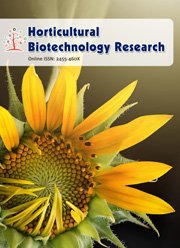Oral administration of probiotic strain, Lactobacillus acidophilus LBKV-3 enhances the phagocytic function of Tribal Children
Keywords:
Lactobacillus acidophilus, Probiotics, Gut microbiota, Human clinical trialAbstract
The basic consideration in selecting the probiotic strain of L. acidophilus-LBKV3 in this investigation was the fact that the organism is isolated from human vaginal surface swab and it was found extensively studied for probiotic characteristic. It was used by several workers for monocultures for various probiotic attributes including hypocholesterolaemic activity, implantation ability, therapeutic effects on GI and related ailments. Orally ingested probiotic bacteria are able to modulate the immune system. However, differences exist in the immunomodulatory effects of different probiotic strains. Moreover, different regulatory effects, which depend on the health status of the consumer, have been identified. This work describes a randomized, double blind, placebo-controlled human clinical trial to investigate the immune effects on tribal children of a fermented product containing probiotic strains, Lactobacillus acidophilus, which was compared with another traditional fermented product, Dahi and Buffalo milk. To study the immunomodulatory effects, implantation abilities of the culture in the GI tract of tribal children, forty-five tribal children of 6-7; 7-8 and 8-9 years were randomly selected and distributed in three groups, each comprising of 15 children in each of the age group. Regular dietary history of the children involved during the feeding trial was obtained. The parents of all children were informed about the importance and the objectives to be ascertained during the study. A formal signed consent was obtained from their parents. The test group of the children was receiving 100g product volunteers/day of freshly prepared Probiotic Acidophilus Milk P.A.M. containing 107 cfu/g of culture. The control group was receiving 100 g freshly prepared Dahi containing 107 cfu/g of the LAB while blank group of the volunteers was receiving thermal processed (850 C/30 min) buffalo milk containing 5% fat and 10 % S.N.F.@ 100 ml/day/volunteer. This feeding trial was continued for 12 weeks. As a result the volunteers assigned to the probiotic group a clear improvement in their intestinal track. The study revealed that probiotics may exert a positive effect on health of tribal childrens.



 .
.